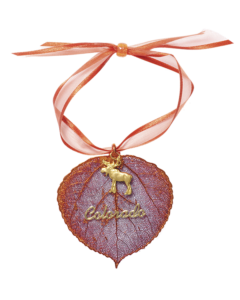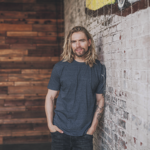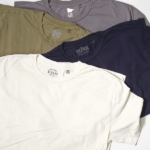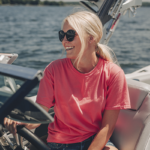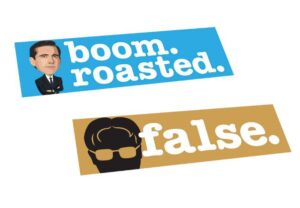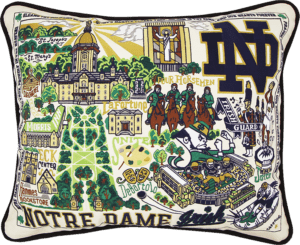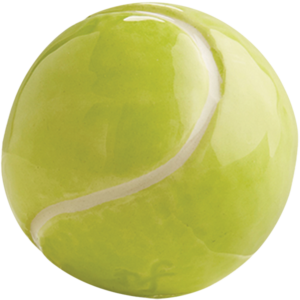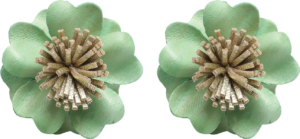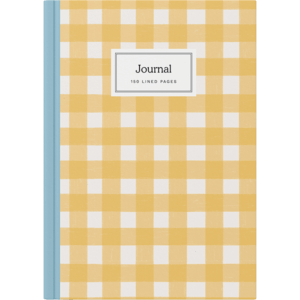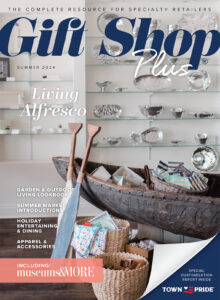Customization Sells
Many businesses have been creating customized products to feature branded names, locations, images, unique stories, and more. Gift Shop discussed customization with a few manufacturers to learn more about how and why they began offering customization, and to seek wisdom for others in the gift industry.
For more information on any of the products shown in the images, please visit our Reader Services Card online and use the “Circle” number to request additional information.
Distinguishable & Memorable
Gift Shop interviewed Liz Ross and David Westby, founders of CoolSnowGlobes, which specializes in capturing the special moments in life, all within a globe. The adventure began in San Francisco, but ultimately settled in Vermont, where the duo remains committed to sharing images and stories within each design.
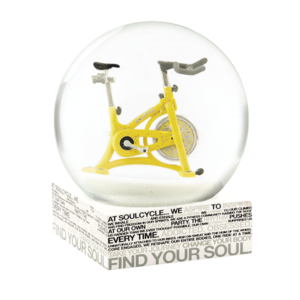
With more than 150 designs, CoolSnowGlobes creates products suited for the first-time buyer, enthusiast, and collector alike. It began designing only custom products for companies such as Gumps, Sundance, and ORVIS. Additionally, its designers have completed commissioned works for the Statue of Liberty, Harrods of London, Burberry, Godiva, Central Park, Metropolitan Opera, Boston Ballet, New York City Ballet and others.
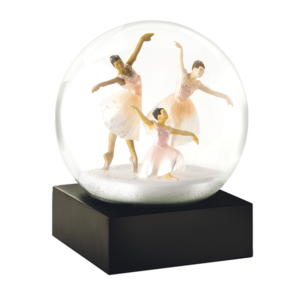
CoolSnowGlobe provides an array of products — not only ones solely focused on Christmas. This strategy has proven beneficial, as its globes are sold in a myriad of venues: spas, hotels, museums and gift shops — over 1,200 worldwide.
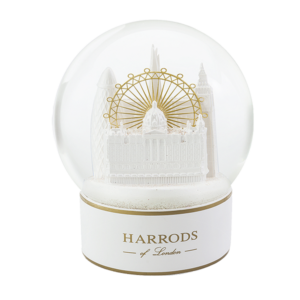
In order to create a memorable product, Ross said they include a signature base as a design element. This base is trademarked and is an example of how customization may include an “identifier.” She said, “It’s our equivalent of ‘Tiffany’ blue … a key element that distinguishes and identifies us.”
Location & Practicality
Rachel Berick and her husband, Michael, founded Maptote, an enterprise inspired by a vacation to Germany and reusable grocery bags designed to pay homage to the locations in which they were sold. Maptote’s growth stems from its ability to showcase places and stories for customers.
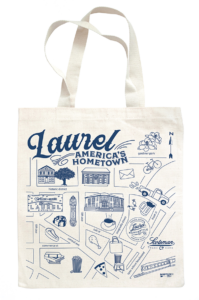
“We have had great success with customizing products for our stores, events, and corporate businesses,” Berick said. “People generally come to us for custom maps featuring their location, but we also create designs that are not map based.”
Designs are developed with a hands-on approach and focus on “functional and practical items for everyday use.” Maptote has collaborated with SFMoMA, The Brooklyn Museum, HBO, L’Occitane and many other businesses to provide such products. Berick revealed, “One of the cornerstones of our company is to produce our products in the U.S.A. with the bulk of it being made local to us in Brooklyn, New York.”
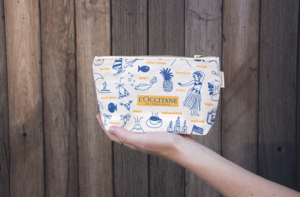
Totes and pouches are made with U.S. cotton. Maptote sources, cuts, then sews and silk screens in Brooklyn. Merchandise is created with a local perspective and strives to create a particular “feel,” in lieu of exact replicas or technical maps. Connecting people to merchandise is important: “We always feel like we’ve done our job when we see a Brooklynite sporting one of our Brooklyn products.”
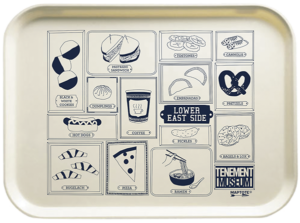
Berick explained providing “the customer with an experience and product they wouldn’t find elsewhere” is important. She also shared effective communication between a maker and its customers is crucial: “Make it very clear up front about pricing and how the process works, so if issues come up it was all clearly laid out in the beginning.”
Consider Efficiency, Production Time & Minimums
American Life Brands, a third generation family-owned business located in Jackson, Wisconsin, has been creating custom woven products for over 40 years. Jeanne Tripi, retail sales director, said many buyers American Life Brands work with wish to see what the finished merchandise looks like before they place orders.
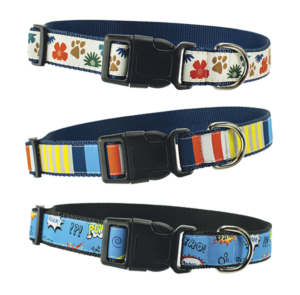
“Their jobs are fast- paced, fluid, and filled with details; so we wanted to make things a little easier and more time-efficient by offering designs that can be woven the way they are, or readily customized by adding a name, logo, or change of color,” she said.
American Life Brand provides design minimums as low as 15-to-25 pieces. “This is quite unheard of and a great way to test new designs or products without deep investment in inventory or storage space,” she said. Since it began offering lower minimums, sales there have benefitted. Another strong selling point for this entity is quick production time. Tripi recognized the importance highlighting a variety of attributes.
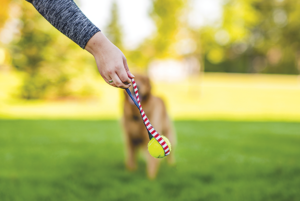
“If a buyer is in a destination location, then the design needs to reflect that by incorporating logos, store colors, locally known icons such as bridges, lighthouses and other natural landmarks or scenery,” she said.
Style demands change over time, but Tripi said latitude and longitude designs are trending well now and provides a way to highlight a destination. She also noted the importance of flexibility for creators to keep trying new things. And for buyers seeking custom products, she said, “I suggest allowing yourself time … it may take a few weeks of varying renditions of a design to achieve exactly the look a buyer wants to tell their story.”
Promote with High Quality Must-Haves
The San Francisco Chocolate Factory, an import- export business which opened in 1999, specializes in providing high-quality chocolate and offers customized signature tin collections. Cory Schwartzman, custom tin specialist, shared The San Francisco Chocolate Factory’s signature Landmark Tin and Wine Lover’s collections were driven by customer demand.
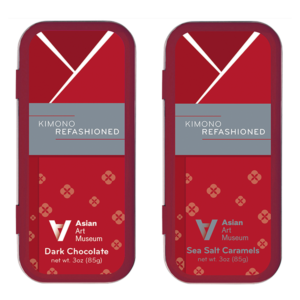
He said, “As dark chocolates became a must-have offering, we carefully selected as many as six dark chocolates for our Wine Lover’s Chocolates product line as well as (our) Custom edibles and packaging are a highly effective promotional tool gift shops may use to promote goals.”
“Museums and National Parks can tell the story of a painting or park history in an attractive and effective manner, providing the gift shop visitor with a highly desirable and informative keepsake,” he said. New product launches, corporate co-promotions, and even exhibition images benefit from custom merchandise, according to Schwartzman.
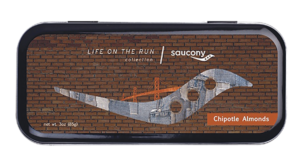
“My favorite gem of wisdom that I’ve learned through the years is once your customers have a successful customized (private label) program in place, they take ownership of it,” he said. “As a result, customers get directed to their high quality store branded products and the sale is made. The result — a win-win for all parties involved.”
A similar sentiment resonated with all the interviewed makers — customization sells. Whether merchandise is used to sell a story, reinforce a memory, mark a geographical location, or provide an edible creation, a common theme is tailored merchandise is effective and delivers brand awareness and a promotional element which capture the hearts and memories of buyers through merchandise sales.
Other Customizable Options
With such a variety of customizable merchandise available, retailers will be able to create the desired mix for any store environment.
Kay Berry
Kay Berry offers personalized wall art, which makes a creative pregnancy announcement or heartfelt gift that can be added to for years to come.
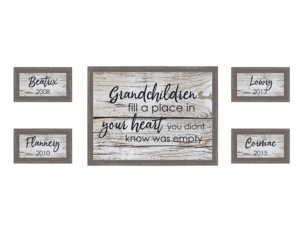
Blue 84
Blue 84 is a wholesale supplier of an array of custom designed and private label apparel. The customizable garments can be found at resorts, college bookstores, major retailers, and gift shops.
Rocky Mountain Leaf Company
Rocky Mountain Leaf Company makes customization easy and affordable by offering free name drops with no minimums. Name drops are available on all real leaf ornaments, as well as the company’s new clam shell ornaments.
